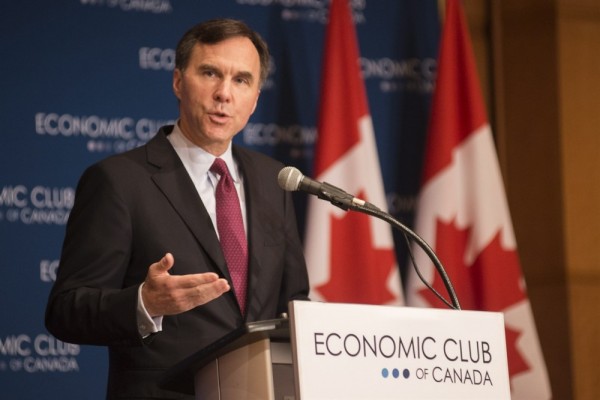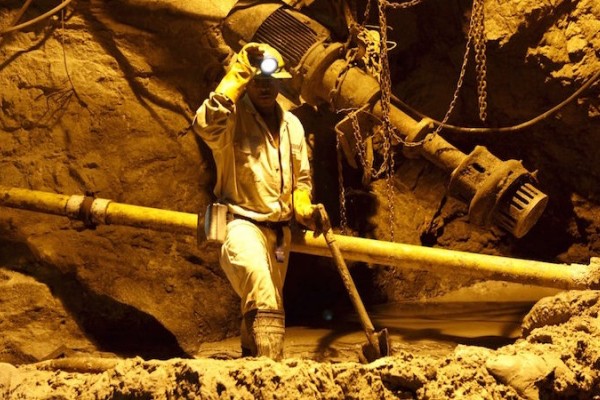Why we should swing post-carbon tax talk left
Carbon pricing in Canada has mostly produced brutal political combat over very small gains. There is a better way
_800_657_90.jpg)
For the last 40 years, the carbon tax has been the market-based approach to climate change most favoured by right-wing economists. Photo by Edward Kimmel/Wikimedia Commons.
In 2012, Republican presidential nominee and former private equity mogul Mitt Romney attacked the “radical socialist policy” of the Affordable Care Act, commonly known as Obamacare. The trouble was Obamacare was essentially derived from Romneycare. As Governor of Massachusetts, Romney had installed the first draft of this corporate-friendly health insurance scheme that would ultimately become America’s national alternative to single-payer health care. This time Obamaromneycare won out, health insurance expanded insufficiently, and corporate profits expanded overzealously. Three years later, Romney boasted that “without Romneycare, I don’t think we would have had Obamacare… a lot of people wouldn’t have health insurance.” Working class Americans remain confused as to whether he is flexing or apologizing.
On April 1, 2024, the Canadian public similarly pulled an April Fool’s prank on itself. Fuelled by right-wing politicians and tweet-injected groupthink, we seem to have managed to fall for our own hoax. We pretended there was a “conservative” uprising against the “left-wing” carbon tax policy of Justin Trudeau amidst an inflation crisis (one to which rampant corporate oil profits have been central contributors). Unlike Romney, we may have won the debate—and destroyed the only conservative climate proposal in the process.
Well, let’s not shed too many tears.
For the last 40 years, the carbon tax has been the market-based approach to climate change most favoured by right-wing economists—and it has been promoted by capitalists, at least in part, to stymie massive public investment in renewable energy at the pace that the climate crisis demands. In fact, when Jordan Peterson rants that global warming creates positive economic offsets by making new places fertile for agricultural production, he is reiterating a theory promulgated by William Nordhaus, the leading figure behind carbon tax policy globally. As Steve Keen observes in his paper, “The appallingly bad neoclassical economics of climate change,” Nordhaus, the high-profile former Sterling Professor of Economics at Yale, has been responsible for some of the most anti-science, apocalyptic thinking in the profession, yet he is regularly passed off as an “environmentalist” among neoclassicists because of his carbon tax advocacy. Indeed, the carbon tax is about as left-wing as Romneycare.
Since the 1980s, neoliberal advocates have proposed that a gradually increasing carbon taxes would give green innovators a highly profitable competitive advantage. Private companies that reduced emissions, they argued, would have both lower costs than competitors and a growing base of consumers looking to reduce their own taxes and maximize their rebates. The result would be high profits, economic growth, and sufficiently reduced pollution with minimal costs to the public purse. With good corporations and consumers following the proper incentives, more direct state intervention or heavy-handed regulations of greenhouse gas emissions would not be necessary.
To be fair, it is far from the worst idea neoclassicists have put forward over the years. Carbon taxes can do something to curb emissions, and a number of people—though hardly all—are satisfied with the kickback they get from the rebate system. Don’t feel bad if you have vouched for the policy amidst a turbulent sea of disinformation. But let’s not confuse it for a left-wing proposal, nor our only or best option moving forward.
In fact, the price on carbon has an entrenched small- and big-C conservative history here in Canada. There are two main forms of carbon taxes: the direct tax, which is simplest, and the cap-and-trade policy based on tradable credits for polluting. While Liberals have generally favoured the former, Conservatives began advocating for the latter back in 2004. Stephen Harper campaigned on cap-and-trade, while his Minister for the Environment John Baird stated “carbon trading and the establishment of a market price on carbon are key parts of our Turning the Corner plan.” Baird repeatedly boasted that Conservatives had strong “mandatory targets, unlike the Liberals who preferred a weak, voluntary approach.” His successor, Jim Prentice, also penned policy drafts of a “foundation for the development of a carbon market across Canada…. by establishing a price for carbon in Canada—something that has never been done before in this country.” This mostly changed in 2011, as Harper approached a majority government. He then did an about-face, ditching cap-and-trade and claiming “nobody in the world is regulating their oil and gas sector”—a brazenly false claim. That was not the end, however: prior to the emergence of Pierre Poilievre as Tory leader, Erin O’Toole proposed a carbon levy that would put revenue into savings accounts instead of rebates, saying “we recognize that the most efficient way to reduce our emissions is to use pricing mechanisms.”
The Liberals, Conservatives, and to a certain degree New Democrats have generally offered either their preferred carbon tax or nothing much at all. The implication is that there are no other options, one which the current media sphere has negligently accepted. Well, it’s not true and never was. If the carbon tax is in trouble, we should open the door on the left.
The University of Toronto’s Jessica Green has argued from the left for years that we should scrap the carbon tax policy. The reassuring story that the carbon tax means real action is nonsense, Green proposes: it has mostly produced brutal political combat over very small gains—an unnecessary toxic poisoning of the social well. Green’s alternative fits the framework of the traditional left. We should chip away at the more than $5 trillion in subsidies that went to fossil fuel corporations globally in 2017 alone, tax the rich, and pay for good union jobs producing a sustainable energy system—including quality free public transit.
This is a reasonable proposition to be sure, much as similar proposals have been for decades. It may be one worth organizing around long-term. The current context for it is harsh, however, with a moderate neoliberal facing a likely loss to a radical neoliberal in a year’s time.
There is at least one alternative option—or at least a complimentary one—that may be more immediately actionable.
The government could quickly release subsidies for cooperative and community ownership of renewable energy projects. A similar technique was used in the struggling Danish island of Samso, where residents described themselves as a “conservative farming community” with a dwindling economy. Samso sparked an economic revival with renewable energy, largely rooted in wind energy, on the rule that if a person could see a turbine from their backyard they would have opportunity to invest in it. This led to nearly unanimous support for wind turbines; almost unheard of in conservative communities. With grant funding from the Danish government, Samso swiftly erected first onshore then offshore wind turbines through combinations of cooperative, municipal, and private ownership. Their grassroots, participatory approach not only allowed them to achieve net zero by 2007—and negative 12 tons per capita today—but turned them into an energy exporter with new jobs and broad ownership of profits.
If the federal government doesn’t have time or vision for a politically unpalatable state capitalist approach (otherwise known as a Green New Deal), it could offer grants and resources to help citizens buy into cooperative and other community models first. Better still, it could use a popular windfall tax on greedflation to provide funding, redistributing it as broad-based cooperative capital with long-term returns. Much like the recent rental protection fund for non-profit housing providers, grants and low-interest loans could go directly to create and expand organizations like Ontario’s SolarShare. This wave of democratic inclusive ownership could snowball in community partners and set the stage for future activity with a wider range of working class possibilities.
If the carbon tax is a dead corpse that keeps on dying, let’s make livelier offers. The transition to a sustainable energy system should have been rooted in class from the start. Let’s stop playing rhetorical tricks on ourselves, and fill the political void with actionable proposals. Along the way, we might even heal social wounds as well as environmental ones.
Colin Bruce Anthes is an artist, educator, and democratic economy organizer. Colin has been artistic director of two theatre companies, taught in five post-secondary institutions across Canada, and founded Community Wealth Candidates in 2021. He has been a contributor to theAnalysis.news since 2022.










